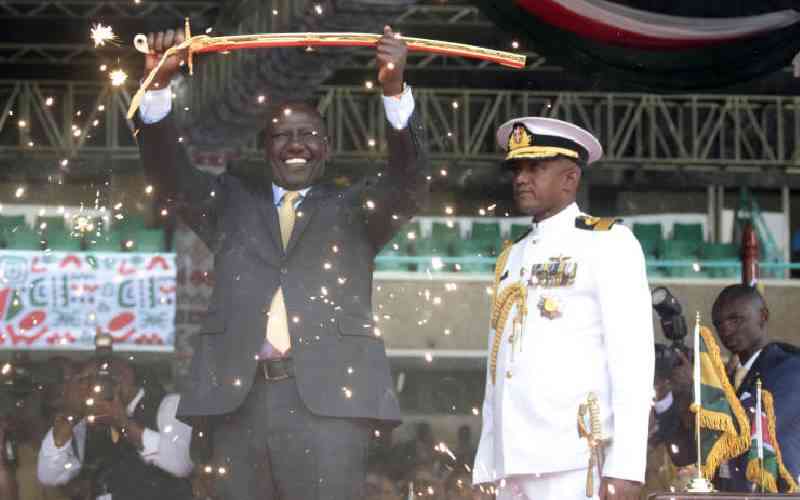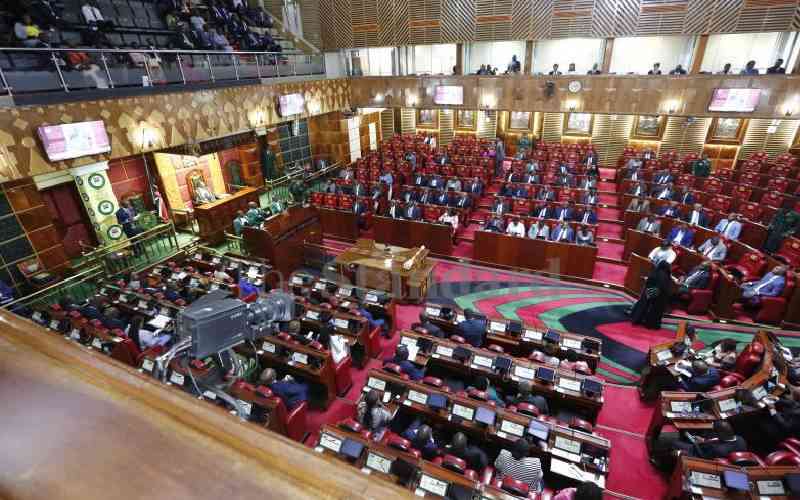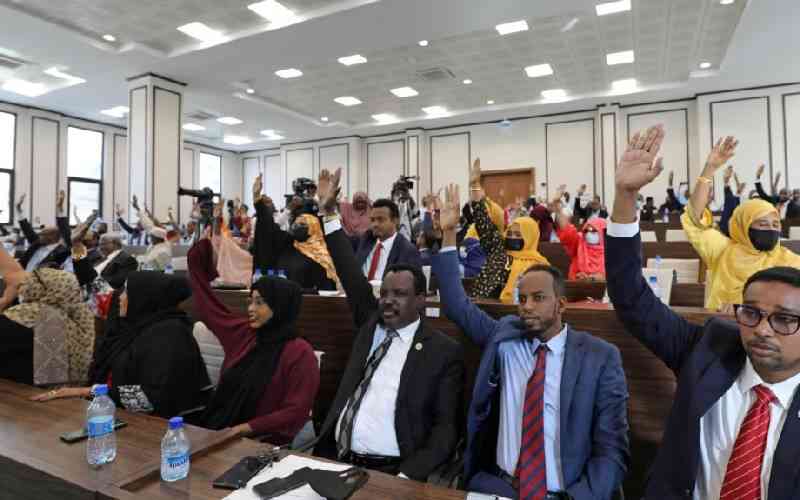Ainabkoi Member of Parliament and chairman of the parliamentary Justice and Legal Affairs committee Samwel Chepkonga last week introduced a constitutional amendment bill that seeks to suspend the clause on the one-third gender rule in elective representation.
In December 2012, the Supreme Court gave an advisory opinion that the one-third gender rule be fully operational by August 27, 2015, an opinion the proposed amendment bill seeks to negate.
Mr Chepkonga’s move has ruffled feathers so much that women parliamentarians are contemplating enlisting the help of the President and the Opposition leader to prevail upon their male colleagues to pass the one-third gender rule. Already, a women’s lobby group, Centre for Rights Education and Awareness (CREAW), has filed a case seeking to compel the Government to implement the one-third gender rule.
The Constitution stipulates that not more than two thirds of elective posts should be made up of one gender. That sounds fine on paper but almost impractical in reality because, as clearly stipulated, the posts are elective and what needs to be done is to empower them to avail themselves of the benefits of this law.
While a lot still needs to be done to ensure gender parity, it must be pointed out that nearly all of the twelve-point resolutions reached at the 1995 Beijing Fourth World Conference on Women have been implemented. This conference sought to achieve equality, development and peace for women. It sought to address issues of women and poverty, health, human rights, conflict, economy, environment, decision making, violence, media and the girl child. Besides, there is specific legislation that protects women; the Victims Act, Marriage Act, Matrimonial Properties Act, Counter Trafficking in Persons Act and the Treaty Making and Ratification Act.
The rights of women have been entrenched and violence against them has been criminalised. Economic empowerment of women is something to be proud of.
The Constitution guarantees a one-third share of positions for women in most fields and the girl child is protected by law. The law allows women to inherit property.
And while the political playing field and social attitudes largely remain tilted to their disadvantage, women seeking elective posts have no option but to go out there and prove their worth.
They do not need any legislation to have command of numbers anywhere they put their hearts to.
Statistically, they enjoy numerical superiority over men and they just need to marshal the numbers to their favour. This calls for more efforts by all to ensure residual patriarchy and unfavourable attitudes are changed so that women can get their rightful share of positions in all spheres of life.
Our history is full of women who made to the top through sheer determination. A case in point is that all elected women MPs actually went out there and proved they were better than the men they ran against.
It is unfortunate some of those elected or nominated to champion women’s rights turn out to be indecisive or sing the praises of men, declaring them their preferred presidential candidates, yet there is no shortage of women candidates who deserve support.
And while it is advisable for all to help women participate in leadership and decision making, hard work, rather than special laws, is the way forward.
 The Standard Group Plc is a
multi-media organization with investments in media platforms spanning newspaper
print operations, television, radio broadcasting, digital and online services. The
Standard Group is recognized as a leading multi-media house in Kenya with a key
influence in matters of national and international interest.
The Standard Group Plc is a
multi-media organization with investments in media platforms spanning newspaper
print operations, television, radio broadcasting, digital and online services. The
Standard Group is recognized as a leading multi-media house in Kenya with a key
influence in matters of national and international interest.
 The Standard Group Plc is a
multi-media organization with investments in media platforms spanning newspaper
print operations, television, radio broadcasting, digital and online services. The
Standard Group is recognized as a leading multi-media house in Kenya with a key
influence in matters of national and international interest.
The Standard Group Plc is a
multi-media organization with investments in media platforms spanning newspaper
print operations, television, radio broadcasting, digital and online services. The
Standard Group is recognized as a leading multi-media house in Kenya with a key
influence in matters of national and international interest.








